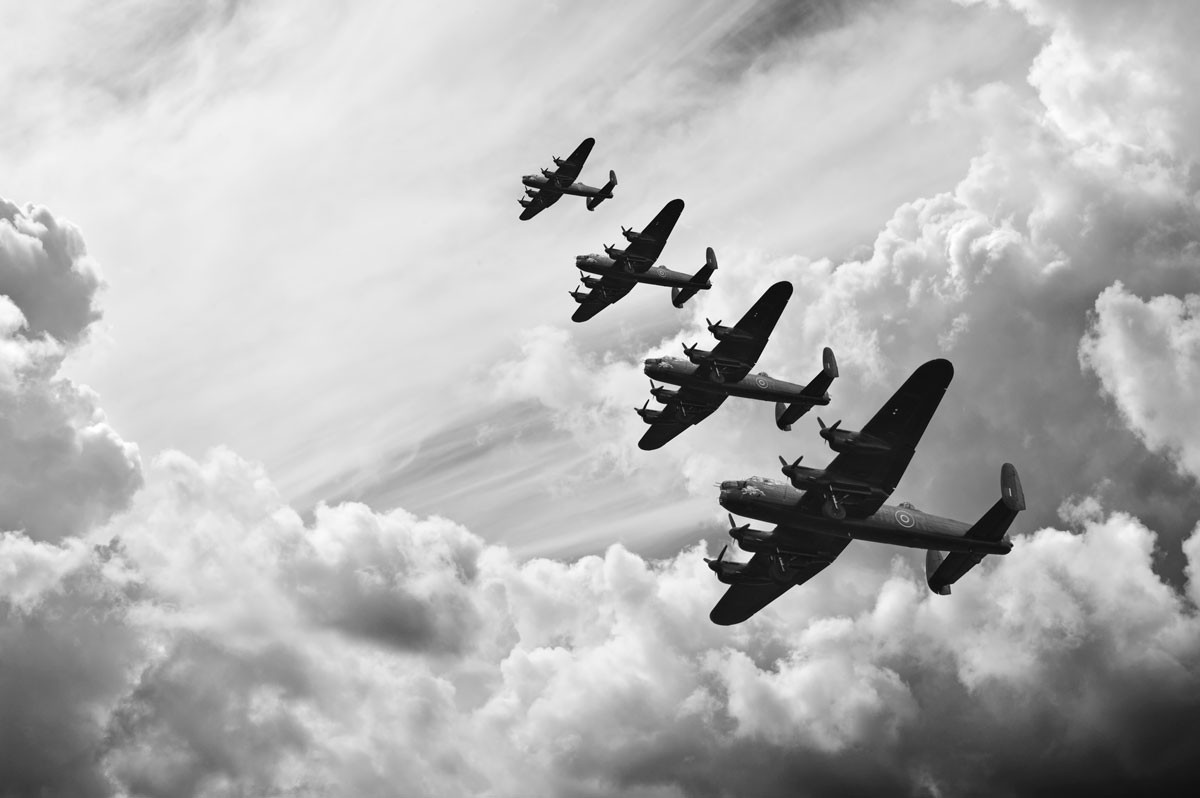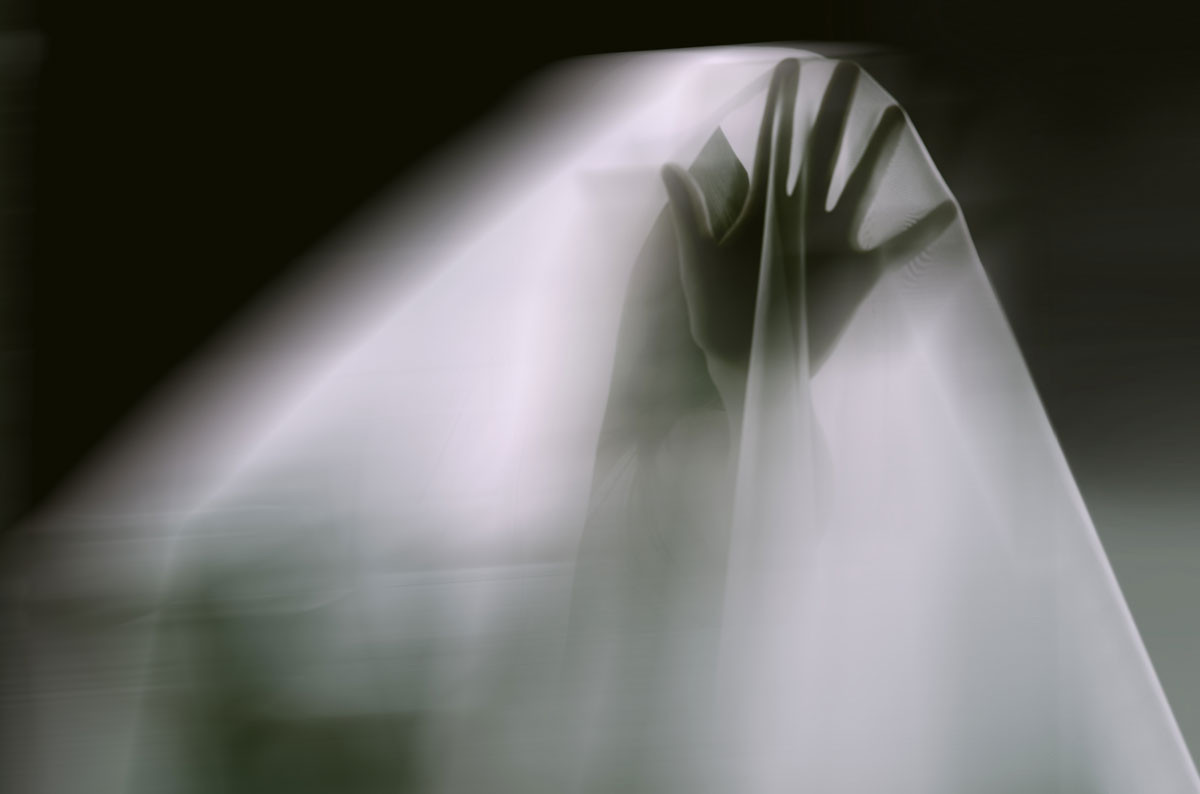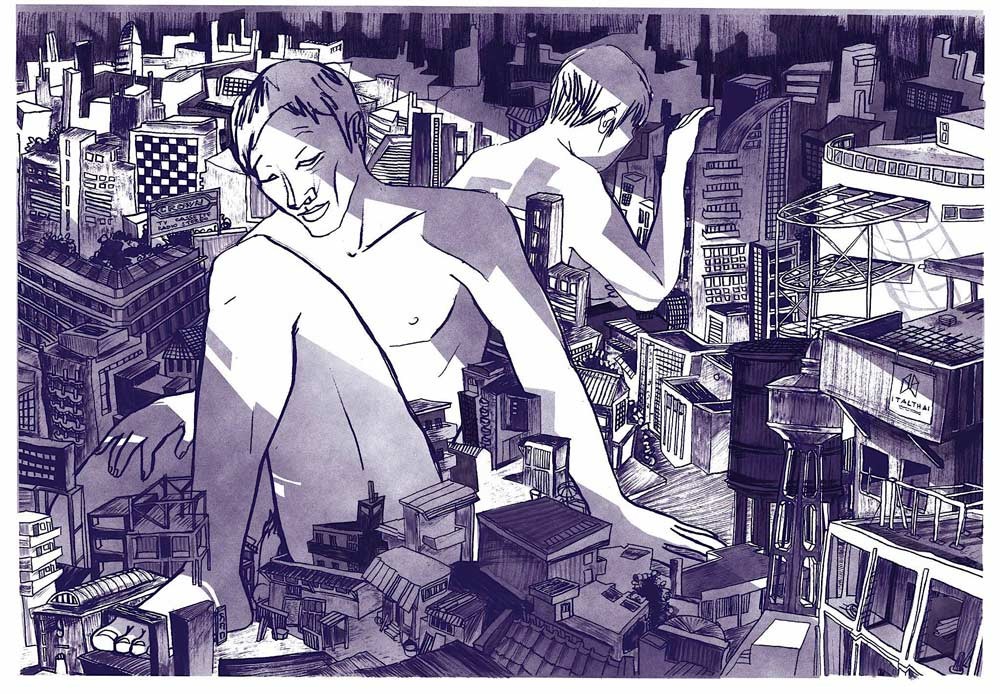
Cover image credit istock.com/Matt_Gibson
By Tee Anmai
Loaded with unmilled rice, a six-wheeled truck made a chug-chug sound as it slowly crawled away from auntie’s paddy threshing ground. Braving the scorching mid-day sun and the northeasterly crosswind, it headed from the village towards the city about 30 kilometers away.
A five-year-old boy, skinny and grubby, tightened the rope of his diamond-shaped pakpao kite, before striding barefoot along a rice paddy ridge, into the cloud of dust left by the truck.
At the threshing ground, a pile of unmilled rice reached for the sky. The boy’s father was a strong farmer. He could thresh a whole bundle of rice, sometimes even two at a time. When the rice struck the wooden plate, the sound was so loud that the whole field could hear it.
The boy heard his mother shouting, but he couldn’t catch her words.
Before the cloud of dust settled and the truck’s wheezing and groaning faded away into the distance, a stream of what were clearly machines, of various colors and many strange shapes, came flashing across the sky in a dashed line from east to southwest.
The boy raised his hand to shield his eyes from the sun while glancing up to catch a good look.
Some people in the flying machines looked down and waved. Some even smiled, and some seemingly slowed down their machines, veering slightly to capture the boy in the field with their cameras.
Had they squinted, the boy might have appeared as an unfinished black dot, adorning a burnt green strand on the canvas of a celebrated artist.
***
In the distance, his parents could still be heard shouting from the direction of the haystack and the threshing ground. Suddenly, moving as fast as a snake’s tongue, a thundering sound came from the West as if the sky was threatening to shatter the earth. In the blink of an eye, a squadron of supersonic fighters conquered the sky above the rice fields. The boy quickly jumped to seek cover from the damp grass beside the rice paddy’s ridge. His body froze but his heart kept pounding in his chest.
The speed and force of their approach left him thunderstruck.
A nursing mother buffalo startled and ran away in panic, snapping the rope that had tied it to the pile of rice-straw. His mother threw away her rice-winnowing basket and rushed straight to the rice paddy ridge where the boy hid himself. His father dropped everything at the rice paddy threshing ground and ran after the mother buffalo and its baby so they wouldn’t go into the neighbors’ rice fields that had yet to be harvested
After tying the buffalo near a wallow, he threw out a large fishnet down in a pond at the end of their rice field to catch some fish. His mother lit a fire in a stove and put on a pot with some water. Then she walked into the rice paddy to find khayaeng vegetables for the soup. The boy was still busy with his tangled kite rope. Father returned with four or five big bullhead catfish and half a creel (basket) full of some ray-finned fish. Mother said she would make papaya salad with hog plum to eat with the grilled ray-finned fish, and a yummy, sour bullhead catfish soup with khayaeng leaves.
At noon, the news on the Thanin Radio reported on the Vietnam War, saying that more than fifty-eight thousand American soldiers were killed and hundreds of thousands more were wounded. It also said that the troops were about to withdraw by the end of April 1975.
At dusk, his mother carried a shoulder pole with two baskets. The one in the back contained a mortar, pestle, rice basket, jar of fermented fish and some vegetables she had foraged. The one in the front carried the skinny five-year-old who was blowing a rice straw pipe the whole way. The pole squeaked as she climbed the paddy ridge heading towards the house.
About nine to ten meters away, his father was smoking tobacco wrapped in dried banana leaves. He was leading the nursing mother buffalo and its baby home while listening intently to the radio’s Siamanusti program. [Translator’s note: Siamanusti program is a Thai military radio program].
At dinner, his mother made a big bowl of pounded ray-finned fish filled with roe with some leafy greens on the side. His father rolled them into big bundles, like the grass used in bamboo fish traps, and dipped them in the bowl of pounded fish. He then popped the hearty morsel into his mouth. His mother scooped two plates of rice for his father.
The cool wind blew briskly as the bamboo groves creaked and swayed. Before going to bed, the boy told his mother that the airplanes scared him. Mother said they were commanid (communist) planes. Commanids liked to take away children who went to sleep late at night and gouge their eyes out. After that, the thin boy did not ask any more questions. He curled himself up under a blanket on his musty reed mat. Gentle, rhythmic snoring soon replaced the sound of parental conversation.
Mother blew out the lantern and laid down, listening to the mournful sound of a kite yoke up in the dark.
***
It was a moonlit night. Under the shade of a tree, the boy and his friends just finished two rounds of playing hide and seek. During the third round, the boy was looking for a suitable place to hide. After a short while, his friends came out of their hiding spots. They said that it was too late and their mothers had already asked them to go home. The boy chose a spot under the Khoi tree as a temporary toilet.
He had yet to finish emptying himself when his friends scrambled and ran to seek cover in the space under the house. With that terrifying thundering sound, he knew immediately what was to follow from the eastern sky. The boy swung his thin body away from under the Khoi tree and ducked into the space under the house. He passed the chicken coops and stopped under the barn encircled by fermented fish jars and packs of salt. Frightfully, his eyes scoured for danger even as he lowered his head and closed his eyelids
A flight of flying machines seemingly stood still above the boy’s head. They threw white beams down to the ground, so bright that it hurt the eyes to look at. Then, a shower of bullets rained down on the rice barn’s roof where the boy was hiding. The corrugated zinc roofing was completely shredded. But the bullets could not penetrate the rice stored in the barn down to the little boy.
After the last round was fired, it was as if the light show was simply switched off. The planes peeled serenely away, one by one. After the last aircraft had disappeared, the boy glanced left and right. His friends had already ran home in the dim moonlight.
As life returned to him anew the boy felt the urge to purge his bladder once again. Awkwardly, he glanced and realized that the rice barn pole was the ideal spot. He peeled the leg of his shorts up and let free a stream of pent up pressure. The fluid gushed out, marking the part of his pant leg that got in the way. The boy tried to roll his pant leg up higher. The piss had soaked everything. He could feel the warmness in his groin as it ran down to his butt. But with one slapping sound, his fear evaporated. He woke from the awkward position in his dream.
And his mother’s voice was more real than anything.
“Oh you dog, you peed on your bed again!”
***
The crowd of neighbors were sobbing. The body lay motionless. But the mother sitting beside the body was even more motionless. Her strongest and most hardworking son passed away in mid-May 2010.
“He was afraid of planes, afraid of rockets, and even afraid of slingshots. He was a terrible shot. When he caught a frog, it was me who had to break its legs for him, and cook them.” The aunty cried while lighting an incense. She calmed herself down and prayed. Then she put the incense stick down and paid respect to her nephew.
“It’s not right that a person who ordained himself as a monk to learn to write and read this much died like this. Whoever talks badly about him, I’ll hit that person in the mouth. It is not normal, I mean our country.” Uncle Som blew out tobacco smoke and looked at his nephew’s dead body.
“He had always been a hardworking one. He was good at studies but he was poor. Lucky, that year, I tricked him into going to a summer ordination program. Then he went on his own. Did you see? His parents spent less than ten thousand baht, and the rest, he fought for himself.”
“Uncle, you have to see when he and I were searching for a temple in Bangkok to let us stay at,” said Bunmi, a friend who had spent his childhood with the deceased.
“The monks in Bangkok would always ask us about where we were from. When we told them that we were from Roi Et, they would say that their temple did not accept any Lao novices. That’s when I gave up. But he did not. He kept going. Because he was smart and he passed the university entrance exam. That was why he tried to ask other monks and novices who also passed the exam if they knew any places he could stay at. He ended up living at a temple. I can’t remember the name. But he was not affiliated with the temple.”
“When he was just a novice in Bangkok, his father visited him without telling him beforehand. After his father returned home, he drank so much and got very drunk for three days, seven days. He said he felt sorry for his son who had to fight so hard for everything. He said his son had to sleep under a mosquito net on the balcony of a monk’s residence. There were tons of books he kept just above him. Once he passed the university entrance exam, he took leave from being a novice. He used to tell me that he had to lie to his father that the balcony was like a living room where he spent time reading. He let his father sleep in the cubicle room instead. But his father knew that the balcony was where he slept and studied until his high school graduation.” Uncle Som sucked a bit of the tobacco smoke into his lungs. The tip of the cigarette flashed red.
“What was the big deal at that time? The Black May 1992, right? After the NPKC, with Big Su, Big Jod, Big Te, seized power from Chatichai.” The tears had just dried up on her face as she spoke in a low voice about the dead.
“After that, there was a crackdown on Ratchadamnoen Road, right? He mailed his father a large pack of newspapers and books. He also wrote a letter asking his father not to believe what was on the television and radio because the military was telling the media what to say. To know the truth, he told his father to read the books he sent. I came to his house to listen to his father reading the news. At that time many people were killed and many disappeared. But it was fortunate that he himself was not at the scene.”
“He grew up as a kid who was always scared, but then he became stubborn, naughty and unruly.” Bunmi moved to sit against the pole. He put his right knee up and spoke with a contemplative face.
“Before we went to Bangkok to find a temple together, he always said that the capital had a lot of books he wanted to read. He wanted to study at Thammasat University. He said that the university taught its students to love the people. He also showed me some banned books. If you see hundreds of thousands of students at the Democracy Monument on October 14, 1973, I guarantee, you will be shocked. But that event would not shock you as much as what happened at the Thammasat Football Stadium on October 6, 1976. There, thousands of students were under siege. Some were lynched under a tamarind tree. Some were dragged out and kicked by crowds. Some were hit with bottles, with chairs. Their bodies were treated like they had no heart. Like those who died didn’t have any parents. And all of this happened in front of Wat Phra Kaeo!”
“But at that time, I heard on the radio that they were communists and Vietnamese people.” Uncle Som said in the midst of the incense smoke while making a fresh roll of tobacco
“Uncle, you have to see the books that he showed me.” Bunmi immediately replied.
“There were only Thai people. The one who was hanged at the tamarind tree was one of us, an Isaan person. That person was studying at Chula. How can I put this. Back then, what happened in Bangkok made me lose hope, right? So, I asked him what he would think if I would go to study at a Buddhist school in Bang Lamung in Chonburi. He told me not to go because the headmaster there had the wrong attitude.”
“I asked him why? He said that the students in the pictures, who were killed at Thammasat, it was because of what this monk said. He said “killing communists is not a sin”, which was used as a tool to incite the Village Scouts, the Nawaphon, and the Red Gaurs to kill the students. So I left the monkhood and returned home to farm. I gave up. No more ordination and education.”
“I remember when he sent those newspapers for us to read. He told us not to believe what the radio and television had to say. He also said that, in the past, some writers went on the radio to incite people. The media manipulated images to incite people to kill each other. He kept reminding us to keep reading those newspapers and books he sent, so we would not be the victims of the media or the authorities.” The aunt said as if she was reliving the past during the events of May 1992.
“What now, smartass? You were so stubborn. So this is how you end up, huh?” Bunmi mumbled incoherently while erecting a stick of burning incense in. He then bowed down to the soulless body of his best friend.
***
You are now at my funeral. That was a conversation of some of my relatives and friends. Don’t panic if they don’t speak like the villagers. Actually, I want you to understand that, my people who are villagers, they are no longer the way you all paint them to be.
Take a look. Bunmi, my friend, is a tractor owner who gets hired to work all over southeast Isaan. He also gave away ten sacks of rice for a group of farmers who joined the rally demanding the dissolution of Parliament. And my aunt, she is the owner of an organic vegetable farm and paddy fields famous for their jasmine rice. Every morning she goes online to check the news and send an email to her daughter who is married to an Englishman.
Then she cooks for her grandchildren before they get on a bus to school. And Uncle Som is the one who owns and drives that bus, taking the grandchildren to school and back every day. My people remember the years as “Christian era,” not “Buddhist era”. Why? The abbot at our village temple said that if we want our memories to be ready and present with the world’s memory,, we should say the year in A.D. so we wouldn’t have to waste time to subtract 543. So when we want to review our memories, it will make our knowledge as fast as world knowledge. We will not be confused and will not waste time adding or subtracting anymore. That’s what the dead, like me, want to say before we get to the story.
***
I was shot at 3 p.m. in the afternoon at a tamarind tree, by the wall of the Ministry of Education. It was on April 10, 2010. I was hiding behind a water tank, hiding from soldiers. But a bullet got me in my side. I only had my bare hands, gloves and a nose mask. At that time a helicopter dropped tear gas onto the stage. Old people, young children and women could not handle what was happening. Because we all came with our bare hands.
We only called on them to dissolve parliament and have fresh elections. We didn’t want anything more than that.
My friend and I were handed gloves and masks by an old lady. We were running to help the wounded on the frontline, where the soldiers were. Then I felt a pain in my stomach. When I looked down, I saw blood spilling out. I shouted to my friend who had followed me. He had to crawl about four to five meters to pull me out from there. Then he carried me onto one of the protesters’ motorcycles to bring me to the hospital.
***
Over a steep cliff below, there was a raging stream. I dodged under a big tree and heard the vague sound of U2’s ‘Sunday Bloody Sunday’ coming from the north. But not before long, the music was drowned out by the thud-thud-thud-thud of a helicopter rising from the cliff ahead. Up there in the air were soldiers, arms laden with weapons. A spotlight beam flashed down below, followed by a hail of bullets. I collapsed and drowned in a pile of blood on the grass under that big tree. A woman I had dreamed about all my life was weeping. She hugged me into her breasts, her heart throbbing with anger
***
Three hours later I was dead. It wasn’t until 6 p.m. on the evening of April 10, 2010 that my sister was able to find me. I saw her running up and down the hospital’s many floors, making many rounds. Because the nurses refused to give her any information at all. Maybe it was because of the chaos, as the hospital was filled with lots of injured and dead people from the clashes that afternoon.
Before taking my body home, my sister received an X-ray print and a doctor’s note stating that I was dead because “a blunt object” broke my pelvis. My sister argued with the doctor. She said, “it’s clearly a bullet hole, why would you not write ‘shot by a bullet’? Why do you have to write ‘a blunt object’?” In the end, the doctor who had his hands smeared with blood told my sister: “I am just doing my duty.”
That was my life. The rest of it, my aunt, Uncle Som and Bunmi, my best friend, already told you. Now I want to hear my mother’s voice. But she would not say anything. She would not cry, and would not any shed tears. That’s my mother.
It happened in our time. In this age of constant sharing of information. We still let people be killed in cold blood in the middle of the road. This is not normal. And I know that when they are finished with my cremation, my mother, my younger siblings and villagers will grow ever more united, as people who only have their bare hands do.
This story was first published 2012 in the third edition of Chai Kha Reuang San edited by Manot Phromsing.
Read the orginal story in Thai:
ซีรีส์ชุด “1 ทศวรรษ พฤษภาฯ เลือด ปี’53” (3) – ตะวันออกเฉียงเหนือ





